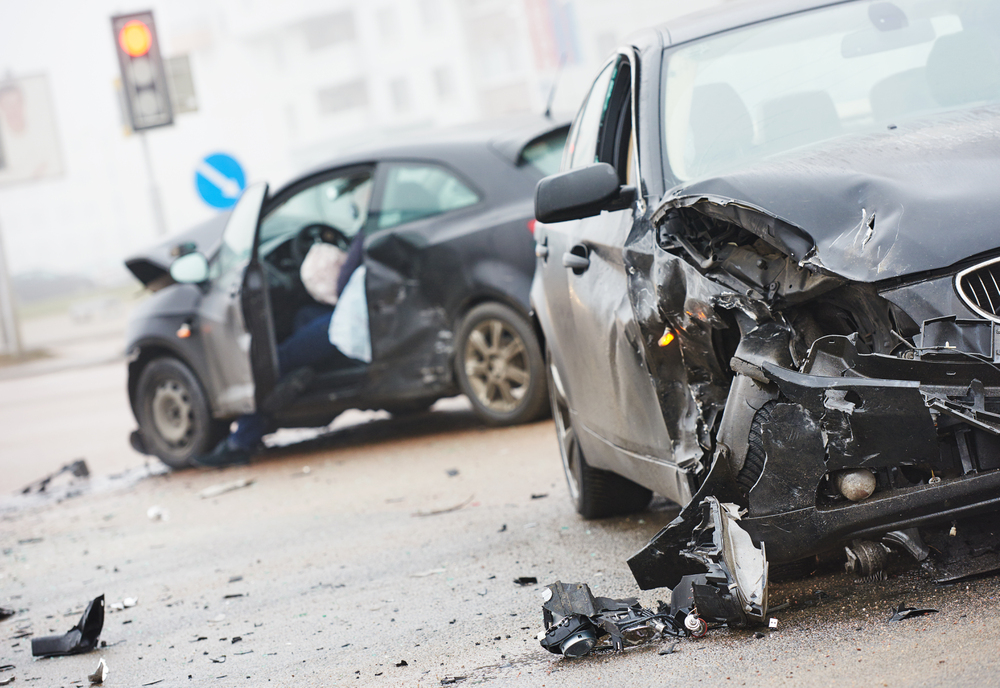Top 6 causes of car accidents
Valerie Raskovic
Aug 06, 2024
The unfortunate truth is that car accidents happen and they can lead to injuries, fatalities, legal ramifications and significant financial losses. Car accidents can pose significant burdens on everyone involved, as well as on insurance companies and the legal system. Understanding the primary causes or car accidents can help in developing strategies to prevent them.
Here are the top 6 causes of car accidents:
- Distracted Driving:
Distracted driving is generally defined by any activity that diverts the driver’s attention away from the road. Most common causes of distracted driving related accidents are texting, talking on the phone, using in car technologies and eating. According to the National Highway Traffic Safety Administration (NHTSA) distracted driving accounted for 13% of all car accidents in 2021 resulting in over 800,000 accidents.
This cause is so prominent because when drivers take their attention off operating the vehicle, it significantly reduces their reaction times and situational awareness. To avoid distracted driving, it is highly advised to focus solely on operating the vehicle and to eliminate any distractions while driving.
The severity of a distracted driving violation can vary by state and the circumstances of the offense. For example, in California, penalties for distracted driving can range from fines to more extreme instances involving actual jail sentences.
- Speeding:
Driving over the speed limit or too fast for road conditions is one of the primary causes of accidents in the USA. According to the National Safety Council speeding was the contributing factor to 29% of all traffic fatalities in 2022 resulting in over 12,000 deaths. Speeding has been attributed to approximately a third of motor vehicle accidents and is one of the leading causes of accident-related deaths and injuries.
In cases where speeding is not the primary cause of the accident it can still have a substantial impact on the accident severity. Speeding reduces the driver’s ability to react to sudden hazards by reducing the amount of time the driver has to maneuver the car around an obstacle. It also increases the vehicles stopping distance and decreases overall maneuverability.
A speeding violation can result in civil fines and in certain circumstances, may escalate to a felony, especially when accompanied by other dangerous activities. The severity of the penalty also depends on the specific state laws where the offense occurred.
- Drunk Driving:
Impaired driving, commonly known as drunk driving, involves operating a vehicle under the influence of alcohol or drugs is one of the leading causes of vehicle accidents deaths. According to the National Highway Traffic Safety Administration over 32% of all vehicle crash fatalities in the United stated involve drunk driving. In 2022 alone over 13,000 people were killed in drunk driving related accidents.
Intoxication from the use of drugs or alcohol impairs judgment, coordination, and reaction times, leading to a high risk of severe accidents. It should go without saying, you should never drive while intoxicated. Drunk driving does not only put the life of the operator at risk but it risks the lives of everyone using the road.
A charge of drunk driving is a criminal offense in every state. However, whether it is classified as a misdemeanor or a felony depends on the specific circumstances and the state where the offense occurred.
- Reckless Driving:
Reckless driving is generally categorized as any type of aggressive driving behaviors such as tailgating, extreme speeding, weaving in and out of traffic, failing to yield to oncoming traffic, not using turn signals and ignoring posted signs. According to the Insurance Information Institute over 56% of fatal vehicle accidents are linked to reckless driving.
Reckless driving creates unpredictable situations for other drivers, increasing the likelihood of collisions. Avoid reckless driving by managing your emotions and stress levels before getting behind the wheel. If you're feeling angry, frustrated, or overwhelmed, take a moment to calm down before starting your journey. Stay focused on driving safely, and avoid letting strong emotions cloud your judgment. Keep your attention on the road, obey speed limits and avoid distractions. Remember, staying calm and collected can help you make better decisions and drive more safely.
A charge of reckless driving can be a criminal offence depending on the state. For example, in California reckless driving without any accidents or other violations is considered a misdemeanor, carrying a potential penalty of up to 90 days in jail and additional fines.
- Bad Weather Conditions:
Adverse weather such as rain, snow, fog and ice can cause or contribute to a motor vehicle accident. According to the Federal Highway Administration (FHWA) about 21% of car crashes yearly are attributed or involve adverse weather conditions. This statistic makes up for nearly 6 million car crashes every year.
The impact of driving in adverse weather conditions can be profound as bad weather has the potential of reduces visibility, traction and control, increasing vehicle stopping distance making driving more hazardous. To avoid getting caught off guard by bad weather, always check the weather forecast before making you trip plans. If you're unexpectedly caught in a sudden snow or rain shower, reduce your speed and increase your following distance. Drive with extreme caution and give yourself extra space to stop safely at stop signs, turns, and roundabouts.
A driver could be held liable for a weather-related accident if they failed to take appropriate precautions in adverse conditions. Insurance companies generally hold drivers accountable for their own safety, as well as that of their passengers and vehicles, when they choose to drive in bad weather.
- Vehicle Safety Defects
Although vehicle defects are not always a direct cause of accidents, I would be remiss not to mention them as a potential contributing factor in some cases. Vehicle defects, such as brake failure, tire blowouts, steering issues can all play a role in an accident. According to the National Highway Traffic Safety Administration (NHTSA) almost 20% of all accidents are caused by poor car maintenance or lack of maintenance.
Part of ensuring vehicle safety involves regular maintenance. Without it, issues can arise that may lead to sudden loss of control, making accidents harder to avoid. To avoid causing an accident make sure to keep up with regular maintenance, perform regular checks to vital vehicle system such as brakes, tires, suspension and drivetrain components to ensure that the vehicle is in good working order. This can prevent accidents caused by mechanical failures.
Drivers who neglect to properly maintain their vehicles can be deemed negligent and held liable for any resulting damages, whether bodily or physical. They may also face civil fines and charges.
By understanding and addressing these top causes, we can work towards reducing the frequency and severity of car accidents, ultimately making our roads safer for everyone.
Read more articles

